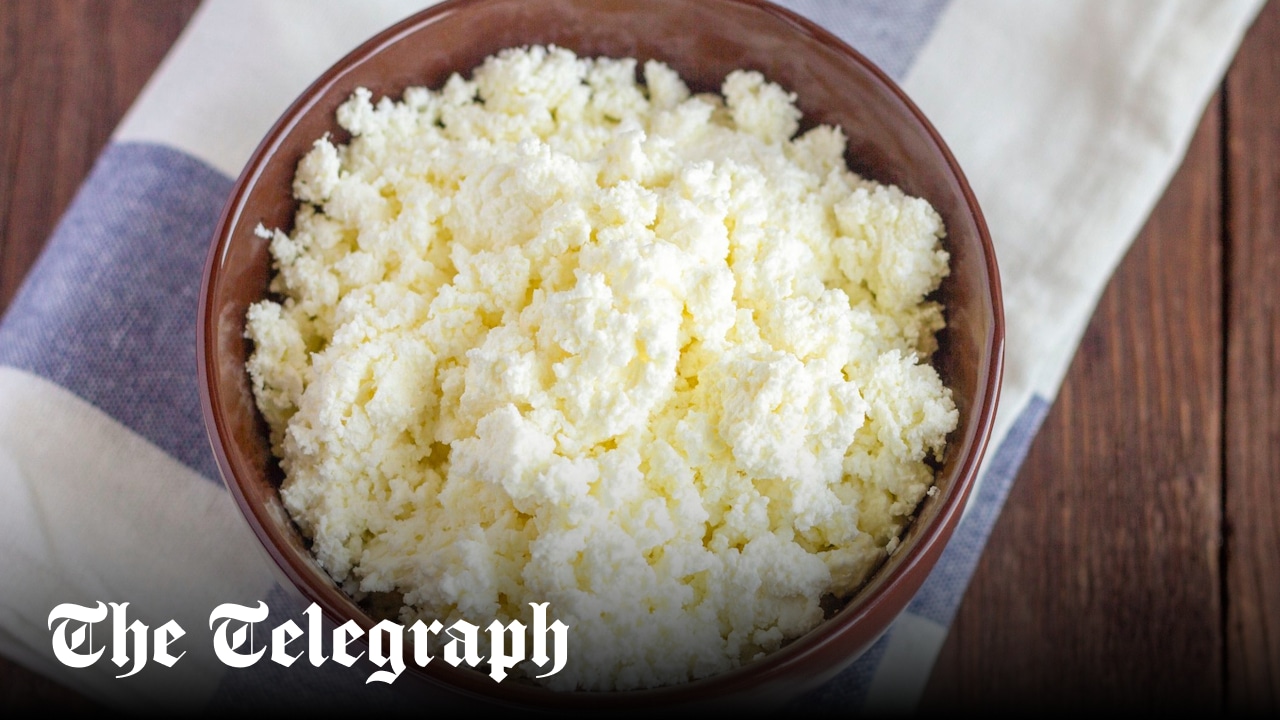
“Yes, cottage cheese is rich in protein, but it also contains calcium, vitamin B12, and other micronutrients,” says Dr Amati.
Vitamin B12 is important for brain function. Calcium, of course, is vital for bone and teeth health, but cottage cheese is a good source of phosphorus, a mineral that also helps in that department, and also of the micronutrient riboflavin, which is good for your skin and eyes.
“Cottage cheese also contains a fair dose of selenium, which is an essential nutrient and an antioxidant,” says Amati. This is good news for everyone, since antioxidants prevent and slow cell damage caused by free radicals (waste substances produced as your body reacts to pressures such as inflammation or pollution).
One cup (225g) is likely to contain around 36 per cent of your daily recommended intake of selenium, important for reproduction, thyroid gland function, DNA production and more.
“Some brands of cottage cheese contain live cultures,” says Dr Emily Leeming, a microbiome scientist, dietician and author of Genus Gut. “These live cultures can introduce new ‘good’ bacteria and yeasts into your gut, helping to maintain a healthy microbiome, which plays a crucial role in digestion and overall well-being.” Not all brands do contain this important ingredient, however: “so it’s important to check the label for ‘live or active cultures’”, she says.
Yes, if you believe the bright young things touting “easy cottage snacks that got me stacked”. But does the science stack up? Sort of. Protein, of course, is crucial for muscle growth because it helps repair and maintain tissue. Since casein is a slow-release form, some bodybuilders eat cottage cheese before bed, aiming for a steady release of amino acids overnight, limiting muscle breakdown. That said, a 2017 study looked at the impact on muscle mass and strength of eating slow or fast proteins after exercise and found no difference.
Overall, “to build muscle, you need to do resistance exercises and eat adequate protein,” says Amati. “Cottage cheese is a good source of protein, but it won’t help you build muscle unless you put in the hard work, sadly.”
“As with other dairy products, cottage cheese contains calcium, which is important to support bone health,” says Amati. That said, hard cheeses contain far more. One hundred grams of cottage cheese, for example, will contain around 90 milligrams of calcium, while the same amount of parmesan can contain more than 900 milligrams.
On the flipside, fresh cheeses contain significantly more lactose than hard cheeses do. One hundred grams of cottage cheese contains around 3.5g of lactose, less than mascarpone (4.5g) but a lot more than cheddar (0.1g). So, “people who are lactose intolerant or have an allergy to dairy should avoid cottage cheese,” says Amati.
Unfortunately, it’s probably not as fudge, as some social media influencers have been touting. “As cottage cheese doesn’t contain fibre, which is key to supporting a healthy gut microbiome, it’s a good idea to pair it with fibre-rich foods such as berries, wholegrain crackers or seeds for a balanced gut-health boost,” says Leeming.
Amati points to Zoe’s viral recipe (see recipe section below) for cottage cheese protein pancakes, which mix fibre, protein and fat in the form of oats, cottage cheese and Greek yogurt, thus slowing the rate at which any sugar is absorbed, leading to smaller blood sugar spikes and longer satiation.
In essence, cottage cheese is one of the most healthy cheeses around, but obsessive food fads of any kind are not, all three experts agree. Take the “mustard and cottage cheese” diet that took hold on Tiktok, influencing people to eat raw vegetables and sausages dipped in cottage cheese and mustard (no, really). Influencers claimed it led to weight loss, while nutritionists criticised it. Cottage cheese, they pointed out, is high in sodium so needs to be eaten as part of a varied diet.
“Cottage cheese can form part of a healthy diet, although I would lean more towards the aged harder cheese like cheddar or parmesan if you want more substantial probiotic benefits,” says Kalinik.
Your best bet, suggests Amati, is not to follow fads but to focus on eating a diverse diet, packed with plants, while staying active. So if you like cottage cheese, eat it. But if you don’t, then don’t panic. Greek yogurt may have less protein, but it also has more calcium, lower sodium levels and is a more reliable source of live probiotic bacteria. Fewer lumps too.
Even if you’re not a fan of cottage cheese, these recipes are full of flavour, so you won’t even notice it.
